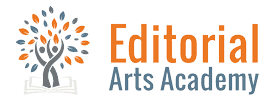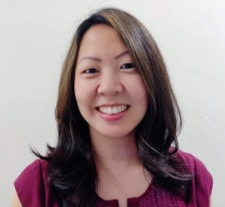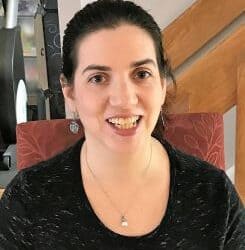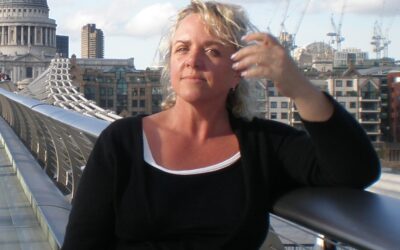“Book editor.” The mere mention conjures up an image of an exalted creature who sits in a corner office of a Manhattan publishing house, madly editing great piles of manuscripts in a quest to create bestsellers, à la Maxwell Perkins.
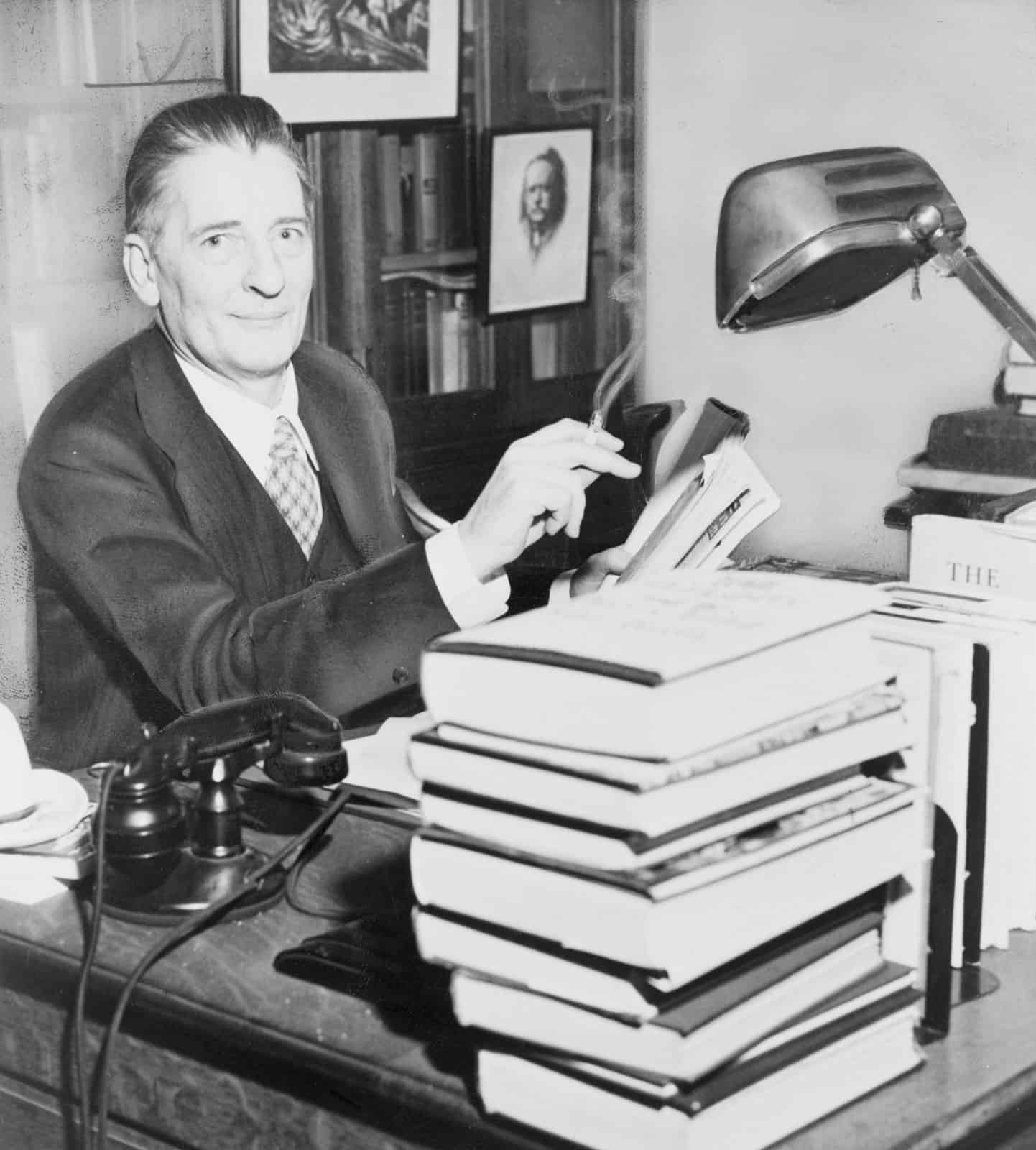
Celebrity editor Maxwell Perkins of Charles Scribner’s Sons in 1943. Perkins is remembered for discovering F. Scott Fitzgerald, Thomas Wolfe, and Ernest Hemingway.
Even as that romantic notion persists, it’s no longer really the case. Today’s book editors are more likely to be freelancers working from home offices.
If you’ve ever dreamt of editing books, this is good news. More people than ever are writing and publishing books, and these writers need the help of freelance book editors to do what used to be done by publishers.
But there might be something else that’s stopping you. If you’re anything like I was, you might be eager for a new career as a freelance book editor, but too afraid to move forward. You might even be suffering from “imposter syndrome,” a sense of doubt in your abilities, regardless of evidence to the contrary.
Let me tell you how I grappled with my own case of imposter syndrome and overcame it to become a freelance book editor.
How I Faced My Fear
I always knew I was a natural wordsmith, but I didn’t know how I could turn my love of words into a career that would support me.
So I settled. Graduating with a degree in English, I went into various jobs: grant writer, ad copy writer, a short-lived job at an NYC publisher as an editorial assistant (aka: slush pile reader), following a well-worn path for wordsmiths who want to earn a living. In none of it did I ever feel fulfilled, like I was giving my gift. I often wondered what I would be when I really grew up. Eventually, I just forgot, and dull, soul-crushing jobs became the norm.
Then I had a series of transformative life experiences, and everything changed. In a personal development workshop, hoping to figure out what I was on this planet to do, the secret was revealed: There was nothing to figure out!
I already knew exactly what I was here for; I just didn’t believe I could do it.
In a giant Aha! moment, I saw how I was afraid I would fail, would never find a way, would get dashed on the rocks if I jumped in and started to swim.
“There’s Nothing to Fear But Fear Itself”
I finally realized my fear wasn’t real. It was just fear! What lay on the other side was unknown, a new world, and I was free to explore.
This experience was hugely empowering. I still didn’t know the “how,” but I was open. I was ready. And soon enough, the opportunities showed up.
I accepted a chance to edit a friend’s book. I soon was getting referrals to help other authors. I stepped out on a skinny branch and found I could survive.
When the money didn’t flow freely from freelancing (and it didn’t at first!), I fell back on my other earning skills — but this time I didn’t forget about my newfound direction. I got an ESL (English as a Second Language) certificate to teach part-time at a local community college, and it was there that I really learned grammar, spelling, and punctuation.
My path was getting paved with all I needed in order to get where I am today, over twenty years later: a full-time freelance book editor with appreciative clients who pay me well and support me to live my purpose.
3 Steps to Moving Beyond Fear
Is imposter syndrome stopping you from living your dream? If so, and you know you’re a wordsmith who has a gift to give, step away from the (fear) vehicle and take a peek into a new possibility.
1. Try a self-assessment: Could you be a freelance book editor?
This quick self-test will help you explore the raw skills you need to be a successful freelance book editor.
For each question, assign a score on scale of 1–5, with 1 being weakest and 5 strongest:
- You love books and try to read as many as you can.
- You’ve always been a good writer, even if you’ve never done it professionally.
- You notice grammar/spelling errors when you read anything (not just books).
- You look at a piece of writing and think: I could have helped the writer say that better.
- You can be motivated and disciplined to achieve your goals.
- You have good communication skills and can be honest in giving feedback.
- You have a basic grasp of grammar, punctuation, and sentence structure, and a willingness to learn what you don’t know.
If your score is 30–35, I think there’s every chance you can become a successful freelance book editor. Descending values tell you the degree to which book editing might or might not be for you.
But even if you scored lower than 20, and you truly believe words are part of your DNA, you can take editing classes and get trained to succeed.
2. Take our quiz: What kind of book editor are you?
There are several different types of editors, and most editors don’t do them all. In about ten minutes, our Editor Profile Quiz will tell you which editor profile you fit into, and which of the seven editorial roles could be a good match.
Once you have a sense of exactly what type of editing you might do, you should feel more confident that this line of work has real potential.
3. Feel the fear but do it anyway
Yes, it’s scary to go after your dreams. Yes, you might hit some stumbling blocks along the way. But I’m here to tell you — it’s worth it! In over two decades of editing books for a living, I’ve never regretted that I kicked imposter syndrome to the curb and began to give the gifts I always knew I had.
I leave you with these parting words from Maya Angelou, which inspired me to be all I can be:
“There is no greater agony than bearing an untold story inside you.”
